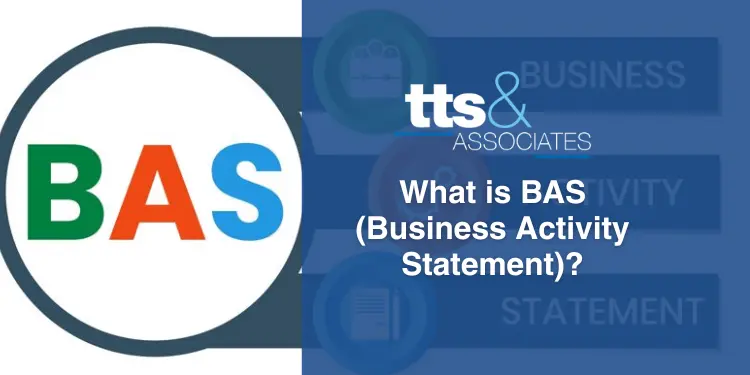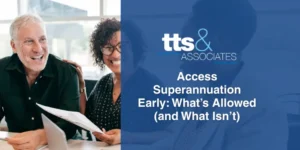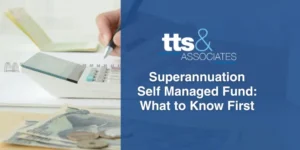What is BAS? A Business Activity Statement (BAS) is the ATO form businesses use to report and pay key taxes during the year. If you’ve ever wondered what a BAS is, it’s essentially the single form that covers GST, PAYG withholding and, for many, PAYG instalments.
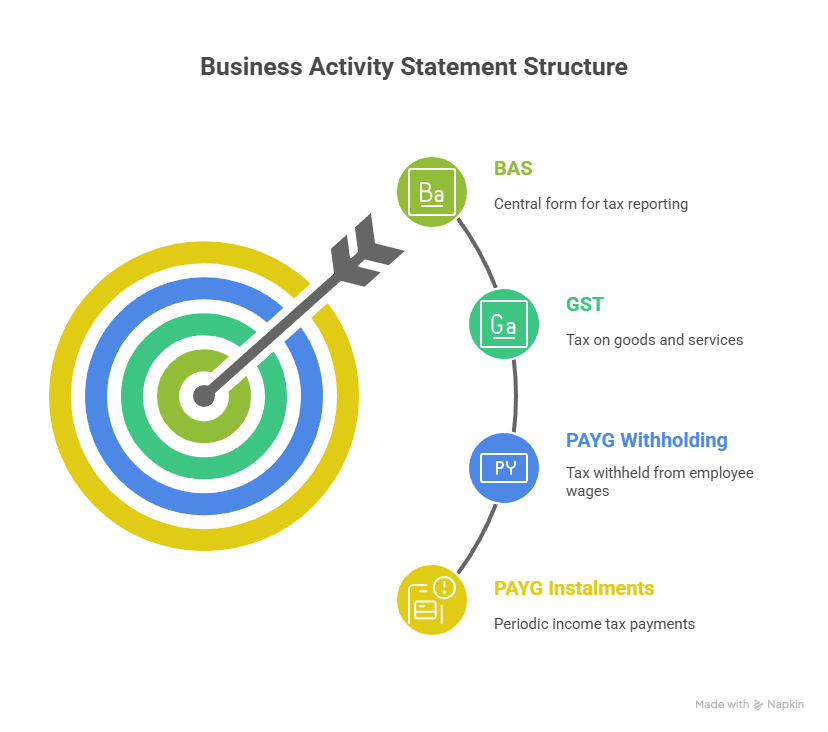
If you’re registered for Goods and Services Tax (GST), withhold PAYG from wages, or pay PAYG instalments, you’ll lodge a BAS on a monthly or quarterly cycle. Understanding what a BAS covers—and how to complete it accurately—keeps your cash flow steady and your business compliant (see the ATO’s overview of ATO BAS overview).
What does a BAS include?
A BAS brings several tax obligations together in one document:
- GST on sales (1A) and purchases (1B): You report the GST you collected from customers and the credits you’re entitled to on business expenses.
- Total sales (G1) and related GST labels: These figures reconcile your taxable, GST-free and input-taxed sales to the GST you owe.
- PAYG withholding (W1/W2): If you have employees, you report gross wages and the tax withheld from those wages.
- PAYG instalments: If you pay quarterly instalments toward your income tax, these appear on the BAS or a separate instalment notice.
- Other items where relevant: Some businesses report fringe benefits tax instalments, luxury car tax or wine equalisation tax.
The ATO’s Simpler BAS approach means most small businesses only need to code a handful of GST fields, which reduces bookkeeping time and error risk (see the ATO Simpler BAS guide). Reliable coding—especially distinguishing taxable, GST-free and input-taxed sales—prevents surprises when you lodge.
Who needs to lodge a BAS?
If your GST turnover will be $75,000 or more, you must register for GST and start lodging activity statements. Many smaller businesses register voluntarily to claim GST credits on purchases. You’ll also lodge a BAS if you withhold PAYG from wages or are in the PAYG instalment system. The ATO’s BAS hub explains which forms you’ll receive and when (ATO BAS overview).
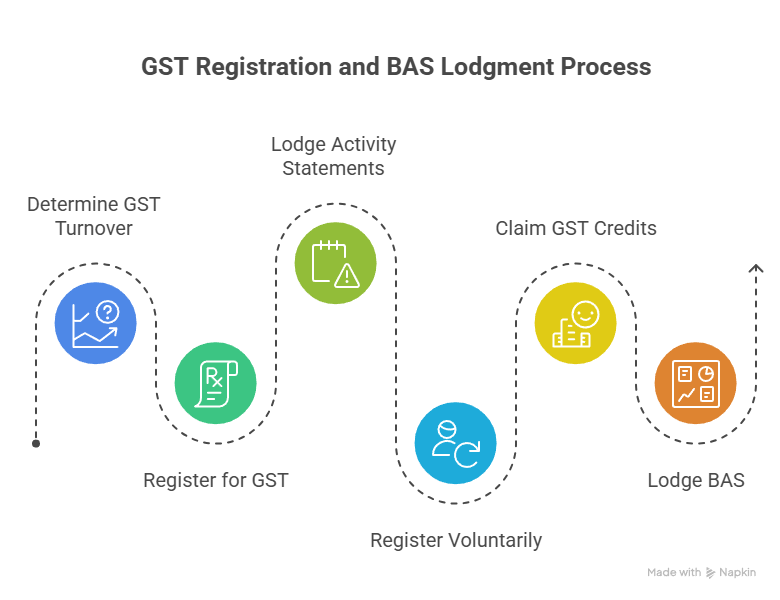
How often do you lodge?
Most small businesses lodge quarterly; higher-turnover businesses often lodge monthly. Quarterly BAS are due on the 28th day after each quarter ends, with an extended date for the December quarter. The ATO publishes the due date on each activity statement and applies the “next business day” rule for weekends and public holidays (see ATO BAS due dates). If you use a registered tax or BAS agent, your lodgement program may give you extra time for some quarters.
How to prepare an accurate BAS
Good systems make BAS straightforward:
- Reconcile regularly. Match bank transactions weekly and attach receipts to entries.
- Use software mapped to BAS labels. Most cloud software generates a draft BAS with G- and W-labels ready to review.
- Check GST coding. Review outliers (e.g., unusually high GST on purchases) and confirm imports, insurance and government charges are treated correctly.
- Payroll health check. Confirm Single Touch Payroll submissions align with W1/W2 totals, and that super guarantee and leave accruals are on track.
- Keep evidence. Store tax invoices, contracts and payroll reports in a cloud folder per BAS period; retain for at least five years.
Lodging and paying
You can lodge online via Online services for business, via SBR-enabled accounting software, or through a registered agent. Pay the net amount owing by the same due date to avoid interest. If you can’t pay in full, lodge anyway—then set up a payment plan; lodging on time helps you avoid Failure to Lodge penalties even when payment is staged. For a step-by-step walkthrough, see our TTS guide BAS Lodgement Simplified.
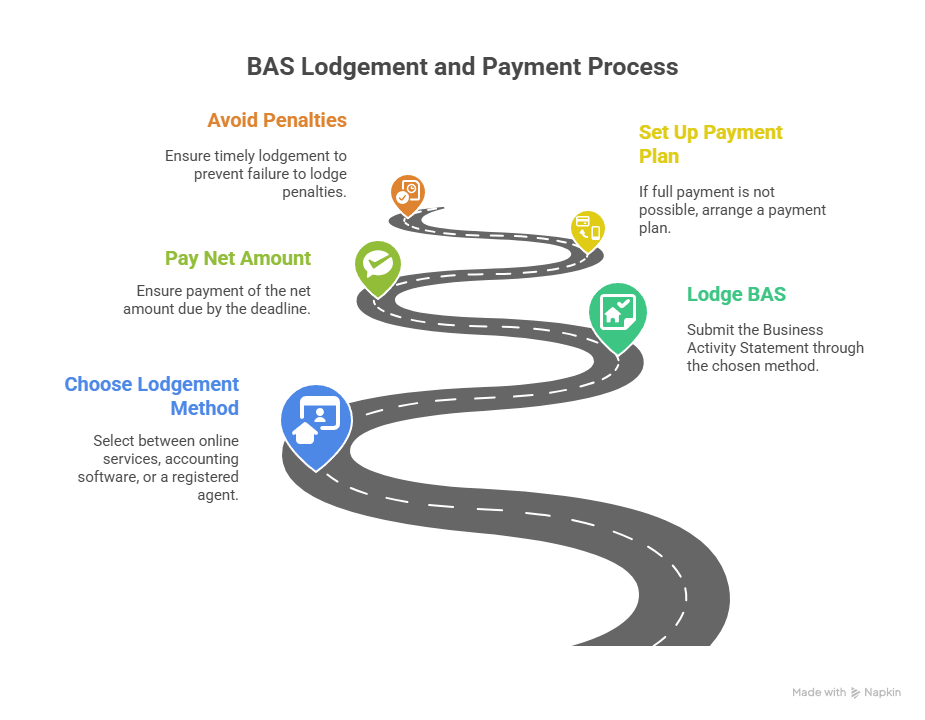
Common mistakes to avoid
- Misclassifying GST. Distinguish GST-free (e.g., basic food, some health) and input-taxed (e.g., residential rent) from taxable supplies to keep 1A accurate.
- Ignoring adjustments. Private use, discounts, and bad-debt write-offs can require GST adjustments.
- Not reviewing payroll. STP totals should align with W1/W2; mismatches suggest coding errors or missed pay runs.
Why work with a BAS accountant?
A registered BAS or tax agent can review your coding, prepare the BAS, and lodge through their agent program (often with extended dates). They can also liaise with the ATO if questions arise. For an overview of what BAS agents do and how they help with compliance, see Hire a BAS Agent: Key Benefits for Your Business at TTS & Associates.
In short: when someone asks what is a BAS, the answer is “your regular tax snapshot.” With tidy records, sensible checks, and timely lodgment, it’s a routine process rather than a quarterly fire drill. Start with the ATO’s BAS overview, adopt a monthly reconciliation habit, and keep a simple calendar of due dates (ATO BAS overview; ATO BAS due dates).
General information only – seek professional advice before acting.
